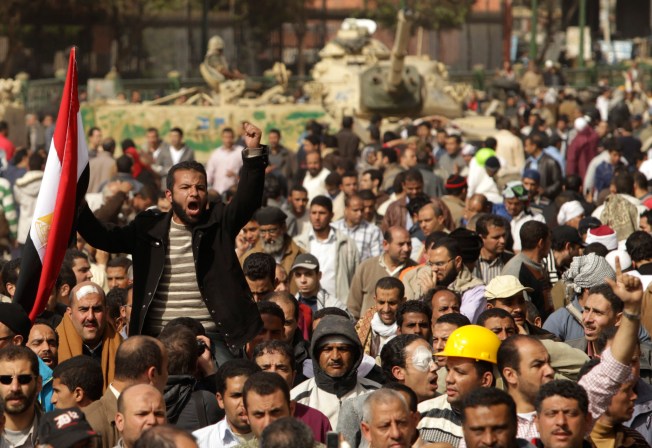Ten years after the Arab Spring, journalists in the Middle East and North Africa confront grave threats while trying to report the news. The historic upheaval has had profound and wide-ranging consequences for press freedom, as authorities and non-state actors use both novel and traditional means to suppress reporting and target individual journalists—including imprisonment, online censorship, and murder.
After making his way across the border by foot, Iranian journalist and 2020 International Press Freedom awardee Mohamed Mosaed sought asylum in Turkey. Mosaed has been sentenced to four years and nine months’ imprisonment in Iran in retaliation for his work. Mosaed told CPJ that when he arrived, he was detained by Turkish police and told he would be returned to Iranian custody. After journalists and advocates around the world spoke out, Turkish officials said deportation “is not on the table.”
Global press freedom updates
- Egyptian journalists Hamdi al-Zaeem and Ahmed Khalifa detained on false news and terrorism charges
- Journalist Kilwe Adan Farah detained, accused of murder in Somali state of Puntland
- Turkish journalist Orhan Uğuroğlu attacked in Ankara. Separately, Turkish police raid Etkin News Agency, arrest reporter
- Inter-American Commission on Human Rights orders Colombia to protect journalist Ricardo Calderón
- Portuguese police surveilled, interrogated journalists in leak investigation
- Argentine municipal government files criminal complaint over journalist’s COVID-19 reporting
- Russian journalist Dmitry Timoshenko repeatedly arrested, fined over protest coverage. Separately, the country’s media regulator announced fines for RFE/RL outlets under expanded “foreign agent” law
- Nigerian security forces seize journalists’ cameras, delete photos
- Lebanese journalist Radwan Mortada questioned over port explosion criticism
Spotlight
Award-winning journalist Maria Ressa was handed a new cyber libel charge and warrant as state-orchestrated attacks escalate in the Philippines against her and Rappler, the news organization she founded. In response, more than 80 organizations in the #HoldTheLine coalition publicly condemned the latest charges. Join us in helping to #HoldTheLine!
Hear from Ressa directly when CPJ Executive Director Joel Simon joins her in conversation Monday at an online event hosted by Frontline, “Speaking Truth to Power: Press Freedom in the Age of Disinformation.” Learn more and RSVP.
What we are reading
- Zuckerberg’s WhatsApp follies: Tight integration with Facebook is a way of selling your data to advertisers and others – Mishi Choudhary and Eben Moglen, Times of India
- Afghan journalists are being killed for their work, and they just “want to stay alive” — Ahmad Mukhtar, CBS News
- How can journalists and researchers keep themselves safe while reporting online — Sara Sheridan, Tow Center
- 100 hours in the dark: How an election internet blackout hit poor Ugandans — Nita Bhalla and Alice McCool, Thomson Reuters Foundation
- The Impact of COVID-19 on Journalism in Emerging Economies and the Global South — Thomson Reuters Foundation
